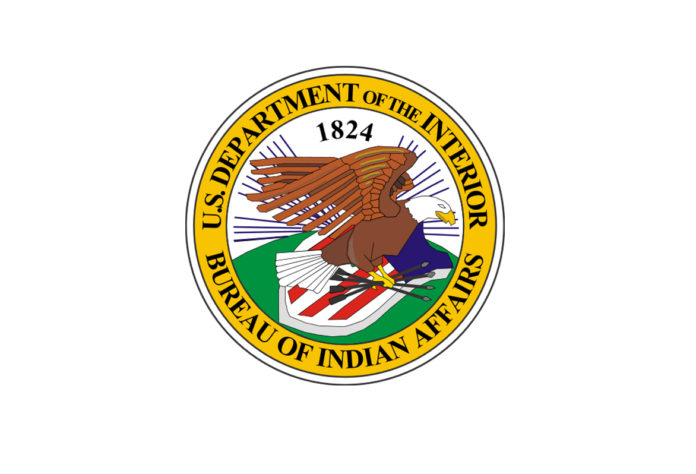WASHINGTON, D.C. – The Bipartisan Infrastructure Deal passed by Congress on Nov. 5, 2021, makes historic investments in Indigenous communities’ efforts to tackle the climate crisis and boost resilience of physical and natural systems.
“As the effects of climate change continue to intensify, Indigenous communities are facing unique climate-related challenges that pose existential threats to tribal economies, infrastructure, livelihoods, and health,” said Secretary Deb Haaland. “Coastal communities are facing flooding, erosion, permafrost subsidence, sea level rise, and storm surges, while inland communities are facing worsening drought and extreme heat. The Bipartisan Infrastructure Deal’s historic investments in tribal communities will help bolster community resilience, replace aging infrastructure, and provide support needed for climate-related relocation and adaptation.”
The Bipartisan Infrastructure Deal includes a $736 million investment for the Bureau of Indian Affairs (BIA), including for infrastructure projects and climate resiliency initiatives. The investments include:
- $270 million for BIA’s road maintenance program to improve the safety and condition of BIA-owned roads
- $250 million for construction, repair, improvement and maintenance of irrigation and power systems, safety of dams, water sanitation and other facilities
- $216 million for tribal climate resilience, adaptation and community relocation planning, design and implementation of projects, which address the varying climate challenges facing tribal communities across the country.
The infrastructure deal also includes a historic investment of $2.5 billion to help the Department fulfill settlements of Indian water rights claims and deliver long-promised water resources to tribes, certainty to all their non-Indian neighbors, and a solid foundation for future economic development for entire communities dependent on common water resources in the face of climate change.
With this transformational funding, the Interior Department will support collaborative and community-led planning, relocation expenses, infrastructure investments, and other forms of assistance to tribal communities. The infrastructure deal’s investments would also advance our equity and environmental justice goals by helping safeguard vulnerable tribal communities and making our economy fairer and more equitable. Secretary Haaland previously highlighted these investments in a trip to the Quinault Nation, as well as in a Seattle Times op-ed.
As part of this broader commitment, the Interior Department also recently awarded nearly $14 million to dozens of American Indian and Alaska Native Tribal Nations and organizations to support their climate adaptation planning, ocean and coastal management planning, capacity building, and relocation, managed retreat, and protect-in-place planning for climate risks.
The all-of-government approach is essential to supporting and empowering tribal communities as they simultaneously face environmental impacts to physical, cultural, and subsistence-based infrastructure and relocate to higher ground.















































